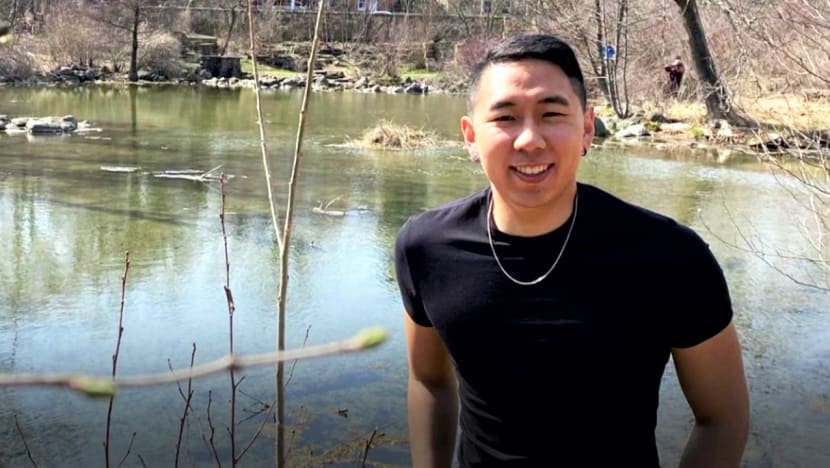Cannabis-flavoured gummies, ‘CBD’ massages in Thailand: Why Singaporean visitors must beware
Thailand’s cannabis industry is thriving even as questions hang over its future after the kingdom’s recent general election. Meanwhile, Talking Point examines how curious Singaporeans can navigate their trips while abiding by the law at home.
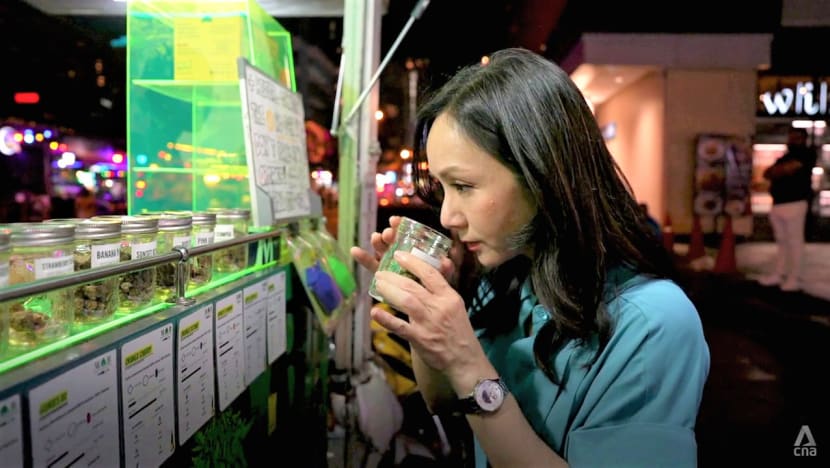
Talking Point host Diana Ser smelling a cannabis product in Bangkok’s Sukhumvit district.
SINGAPORE and BANGKOK: Singaporeans are known to flock to the Thai capital, Bangkok, to unwind, shop and eat. But in the past year, such activities have taken on another dimension as Thailand became the first Asian country to legalise the use of cannabis.
After the kingdom removed cannabis from its list of controlled drugs last June, shops peddling all manner of cannabis-related products “came shooting out like mushrooms”, in the words of CNA’s Thailand correspondent Saksith Saiyasombut.
By some estimates, about 5,000 cannabis businesses have sprouted up across the country — 1,000 of them in Bangkok alone — he told the programme Talking Point, in an episode on how Singaporeans can avoid falling foul of Singapore’s laws while abroad.
Dispensaries stocking different strains of cannabis — also known as marijuana, ganja and weed — restaurants serving cannabis-infused dishes and drinks as well as spas offering massages that use oils with cannabis derivatives are now a part of Bangkok’s landscape.
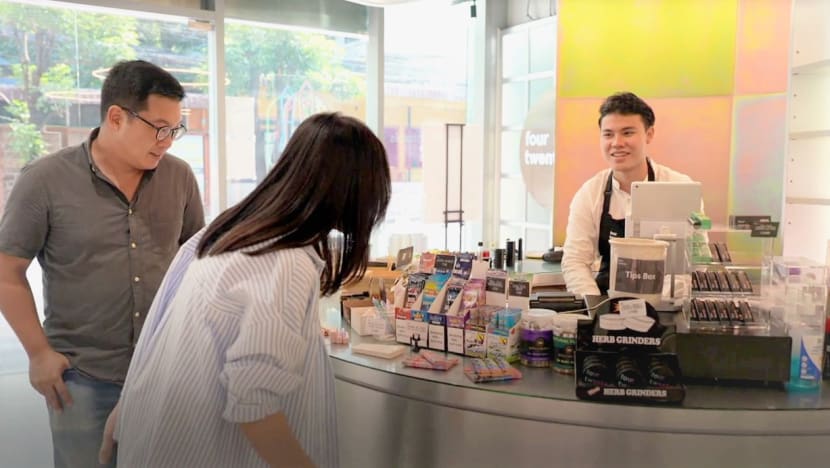
“No one, absolutely no one, is batting an eyelid,” programme host Diana Ser remarked as she walked down a street in Sukhumvit district filled with mobile trucks selling cannabis and related products.
And from the English-language signs and menus in some shops as well as the English-speaking staff, one surmises that “tourists are definitely one of the target audiences”, said Saksith.
Four Twenty Dispensary, for instance, gets Singaporean customers “quite frequently”, said its senior operations manager, Mark Nakayama. “They ask for (cannabis) flowers, but then they also come for edibles and some sort of accessories.”
Kiew Kai Ka restaurant, which uses fresh and dried cannabis leaves in its food, also sees Singaporean patrons, said manager Mike Nuttapong. “They’re curious about how it tastes and maybe the side effects … when they consume our dishes.”
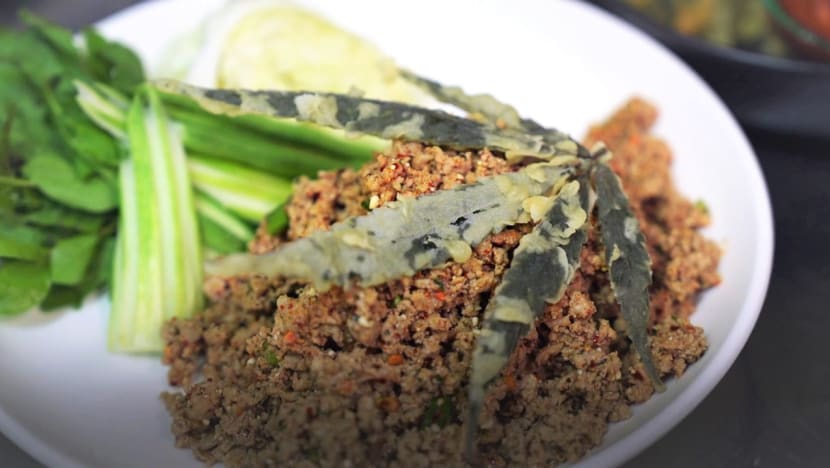
Singapore’s law against drug consumption is clear: Citizens or permanent residents found to have abused drugs overseas will be treated as if they had done so within Singapore. Consumption of a controlled drug could land them in jail for one to 10 years and/or with a fine of up to S$20,000.
But things could get tricky. Some shops in Thailand claim their products such as gummies are merely cannabis-flavoured and do not contain tetrahydrocannabinol (THC), the main psychoactive compound in cannabis.
Spas offering cannabis massages may also assure guests that their oils contain only cannabidiol (CBD) — an ingredient in cannabis that does not cause a high and has been used to treat seizures — and no THC.
So how should curious travellers from Singapore navigate?
WATCH: Curious about cannabis? Dos and don’ts for Singaporeans in Thailand | Talking Point (23:16)
For massages, it is possible for CBD oils to contain THC, said Chulalongkorn University associate professor of pharmaceutical sciences Sornkanok Vimolmangkang.
“If you use a little, I don’t think it’ll show up in your body. But (if) people are using it every day and heavily … it could show up.”
Chulalongkorn University biochemistry associate professor Kuakarun Krusong, meanwhile, found in a study last year that over 30 per cent of samples of in-house cannabis-flavoured beverages sold in eateries contained amounts of THC higher than what was permitted under Thai law.
And when Ser had six cannabis-flavoured beverages tested, the laboratory results showed that four of them contained THC when they all were not supposed to.
Kuakarun recently told the programme Undercover Asia that products should be clearly labelled to indicate any THC content, as some consumers may have health problems or do not want to consume THC.
WATCH: The highs and lows of Thailand’s cannabis rush | Undercover Asia (46:28)
Where Singapore’s rules are concerned though, Law and Home Affairs Minister K Shanmugam said last year that when someone is found to have consumed drugs, the Central Narcotics Bureau (CNB) will investigate. If consumption is unwitting, usually no offence is committed.
As for eating food cooked with cannabis, Talking Point invited some Thais to dine at Kiew Kai Ka and do self-tests for THC for three days after that. Their tests all were negative.
But Rasmon Kalayasiri, the director of Chulalongkorn University’s Centre for Addiction Studies, cautioned that lab tests and tests of hair samples could be more sensitive than self-test kits. “The THC in the leaves is very low in concentration,” she said.
However, if you don’t want to have THC in your system, no need to try cannabis food or drinks at all, even small (amounts).”
GENIE ‘OUT OF THE BOTTLE’ IN THAILAND
Even as the cannabis industry thrives in Thailand, public debate is far from settled, and there are signs that the rules may change.
After its win at Thailand’s general election this month, the Move Forward Party led by prime-ministerial candidate Pita Limjaroenrat and its seven political allies signed a pact outlining their working agenda. One of the items, the reinstatement of cannabis as a banned narcotic, has drawn opposition from pro-cannabis groups like the Cannabis Future Network.
Listen: Why do young people in Singapore think cannabis is a less harmful drug? Heart of the Matter finds out:
But even before the elections, Erich Parpart, business editor of news site Thai Enquirer, told Undercover Asia: “The genie is already out of the bottle. Are we going to put it back to where it was?
“What could happen to the businesses? What about people who opened shop legitimately?”
Forensic toxicologist Smith Srisont is among those who want cannabis back on the narcotics list. The authorities “say it’s for medical use, but they promote using cannabis in food — that’s recreational use”, he said. “They say one thing but do another.”
Since its liberalisation, Smith, a member of Thailand’s Medical Council, has seen more dead bodies testing positive for traces of THC. The hospital where he works, Ramathibodi Hospital, has also seen more cases of cannabis intoxication.
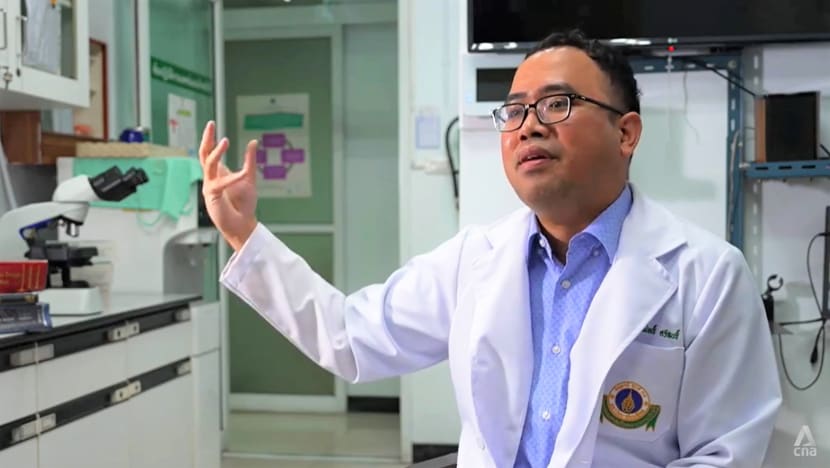
Besides the risk of addiction, studies have found that cannabis can harm brain development, attention, memory and learning.
Current controls forbid public smoking of cannabis and its sale to people under the age of 20, pregnant women and breast-feeding women. It is also banned at state schools.
But what would prevent people who grow their own marijuana from smoking it at home, questioned Termsak Chalermpalanupap, co-ordinator of the Thailand Studies Programme at Singapore’s ISEAS – Yusof Ishak Institute.
The risk of underage cannabis use is underlined in the case of Jeff (not his real name), a 17-year-old in Korat who started the habit at around age 13. “Every house has it. My friends and I are all growing it,” he said.
Now when he does not get to smoke cannabis, he would “easily get agitated” and feel “moody”. He added: “When you become addicted and you try to quit, it’s hard.”
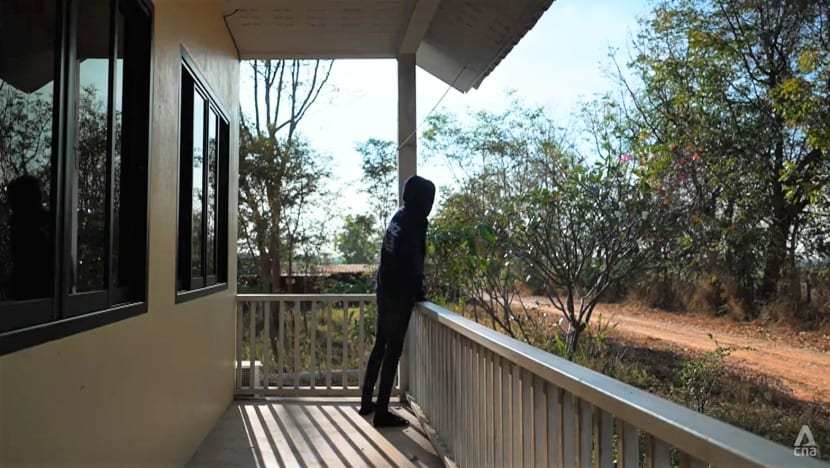
For Smith, the consequences are clear should cannabis remain legal: “If the government doesn’t change (its) mind, it’ll (face) many problems. … This new generation (of Thais) will have lower IQs (and) many psychiatric problems.”
RISE IN CANNABIS ABUSERS CAUGHT IN SINGAPORE
Even in Singapore, which has not loosened its stance on cannabis or other drugs, there has been a shift towards more permissive attitudes, especially among the young.
This is influenced by factors such as its legalisation for recreational use in some countries and an ongoing debate in others.
Pop culture icons have also been seen using the drug, and some online influencers familiarise their audiences with “the language of weed smoking”, said associate professor Elmie Nekmat in the National University of Singapore’s department of communications and new media.
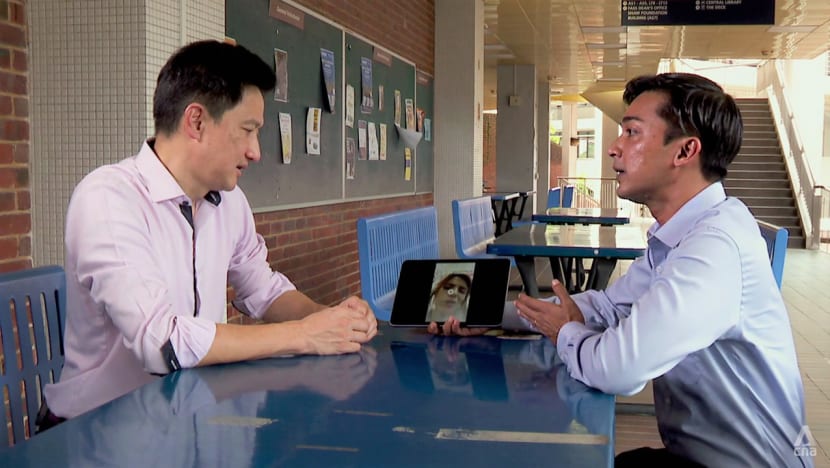
Last year, there was a 71 per cent increase in the number of cannabis abusers caught, from 138 in 2021 to 236, reported the CNB. Most of those caught last year were new abusers; about 61 per cent were below the age of 30.
Some young abusers see it as a “way of bonding with other people”, said addiction psychotherapist Andy Leach at Visions by Promises, the addiction therapy arm of mental health service provider Promises Healthcare.
Whereas previous generations of youth would bond over drinks at a pub, a young client told Leach: “None of us really want to do that any more. We’d much rather smoke marijuana together.”
“He said he didn’t want to wake up with a hangover,” recounted Leach. “Alcohol was more expensive, (while) marijuana is cheaper. It’s a more appealing alternative to the youth of today.”
WATCH: Why are youths getting hooked on cannabis? | Talking Point (23:02)
But “weed is a gateway to other drugs”, said drug offender Ben (not his real name), 29, who started smoking weed at age 15 and is serving a 10-year prison sentence for drug trafficking.
“Maybe (abusers) feel that weed isn’t that serious initially. … But once you start using weed, I’m sure the people who introduced that to you … will start to introduce other drugs.”
For United States-based addiction recovery coach Joel Henry, weaning himself off cannabis has been worth it. Struggling six years ago, he beat his addiction as he did not want to be using drugs for the rest of his life.
“My life’s been improved tenfold,” he said. “I’m much healthier, I sleep better, relationships have improved. That was the big thing that I’ve always wanted.”
Watch Talking Point’s two-part special here and here. The programme airs on Channel 5 every Thursday at 9.30pm. And watch the Undercover Asia episode, Cannabis Cowboy Country, here.
